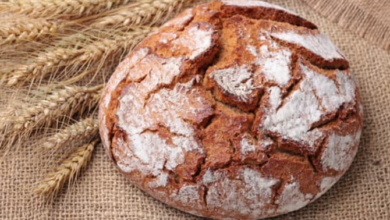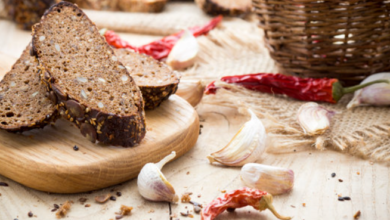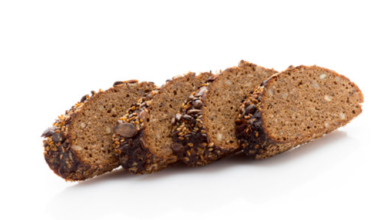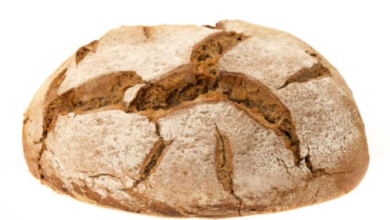What Gives Rye Bread Its Unique Flavor?
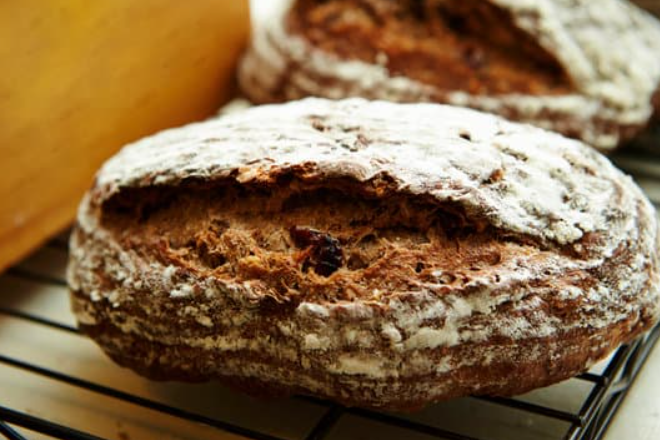
What To Know
- Traditional rye bread is often baked in a wood-fired oven, which imparts a smoky and slightly charred flavor.
- From the rich, earthy taste of rye flour to the subtle sourness of fermentation, from the aromatic warmth of caraway seeds to the influence of baking techniques, each element contributes to the unique culinary experience that is rye bread.
- Rye bread is made from rye flour, which includes the bran and germ of the rye grain, while wheat bread is made from wheat flour, which primarily consists of the endosperm.
Rye bread, with its deep, earthy taste and dense texture, stands out as a unique culinary delight. But what exactly gives rye bread its distinctive flavor? Delving into the intricacies of its ingredients and baking process reveals the secrets behind its captivating taste.
The Role of Rye Flour
The primary ingredient responsible for rye bread‘s characteristic flavor is rye flour. Unlike wheat flour, rye flour is made from the entire rye grain, including the bran, germ, and endosperm. This inclusion of the bran and germ gives rye flour its dark color and a higher concentration of nutrients.
The bran, in particular, contains compounds called pentosans, which contribute to rye bread‘s dense and chewy texture. These pentosans absorb moisture during baking, creating a bread that is less airy than its wheat counterpart.
The Impact of Fermentation
Fermentation is a crucial step in rye bread making that significantly enhances its flavor. During fermentation, yeast breaks down the sugars in the flour, producing carbon dioxide and alcohol. The carbon dioxide causes the bread to rise, while the alcohol evaporates during baking, leaving behind a subtle sourness.
Rye bread typically undergoes a longer fermentation process compared to wheat bread, allowing for the development of more complex flavors. The sourdough method, which uses wild yeast and bacteria, further contributes to rye bread‘s tangy and distinctive taste.
The Use of Caraway Seeds
Caraway seeds are a common addition to rye bread, adding a warm, nutty flavor. These aromatic seeds complement the earthiness of rye flour and enhance the bread’s overall taste profile.
The Influence of Baking Techniques
The baking techniques employed also play a role in shaping rye bread’s flavor. Traditional rye bread is often baked in a wood-fired oven, which imparts a smoky and slightly charred flavor. The high temperatures of the wood-fired oven also create a crispy crust that contrasts with the bread’s dense interior.
The Importance of Toasting
Toasting rye bread further enhances its flavor. Toasting caramelizes the sugars in the bread, creating a richer and more complex taste. Additionally, toasting reduces the bread’s moisture content, making it more crispy and flavorful.
The Versatility of Rye Bread
Rye bread’s unique flavor profile makes it a versatile culinary ingredient. It can be enjoyed on its own, paired with soups and stews, or used as a base for sandwiches. Rye bread also finds its way into various other dishes, such as croutons, bread crumbs, and stuffing.
Unraveling the Flavor Mystery
In conclusion, rye bread’s distinctive flavor is a symphony of ingredients and techniques. From the rich, earthy taste of rye flour to the subtle sourness of fermentation, from the aromatic warmth of caraway seeds to the influence of baking techniques, each element contributes to the unique culinary experience that is rye bread.
Frequently Asked Questions
Q: What is the difference between rye bread and wheat bread?
A: Rye bread is made from rye flour, which includes the bran and germ of the rye grain, while wheat bread is made from wheat flour, which primarily consists of the endosperm. This difference in ingredients gives rye bread its darker color, denser texture, and more complex flavor.
Q: Is rye bread healthy?
A: Yes, rye bread is generally considered a healthier choice compared to wheat bread. It is higher in fiber, protein, and certain vitamins and minerals. The fiber content can aid in digestion and promote satiety.
Q: Why does rye bread have a sour taste?
A: The sour taste in rye bread comes from the fermentation process. During fermentation, yeast breaks down the sugars in the flour, producing carbon dioxide and alcohol. The alcohol evaporates during baking, leaving behind a subtle sourness.
